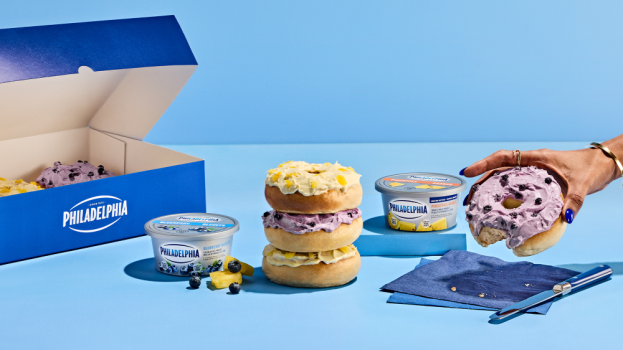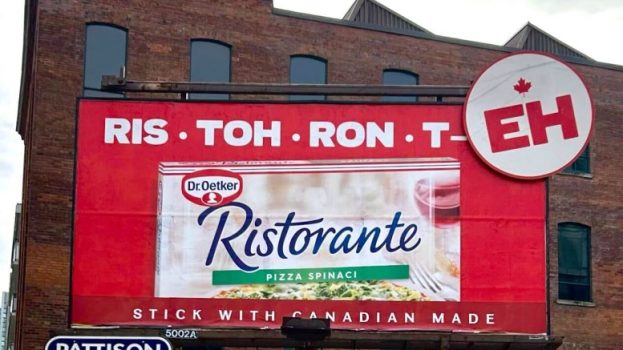Earlier this year, GTA grocer Organic Garage reported its 12th consecutive month of sales increases in what CEO Matt Lurie called a “transformational year” for the company. While he does attribute the growth, in part, to the same headwinds that have buoyed the business of other grocery stores, it is also the result of a fortuitous delivery partnership and sticking to what its customers knew it for.
Strategy caught up with Lurie to discuss how the pandemic has affected business at the independent organic grocer, the increased focus on specialty stores and how it manages to still be the convenient, value-oriented store Canadians clamour for.
One thing Organic Garage was known for pre-pandemic was the look and feel of its stores. Now that online shopping is table stakes, how have people changed how they shop with you on the omnichannel side?
We were fortunate [as] we had signed a deal with an online delivery service just prior to COVID, finalized in January. We were one of the few independent retailers that actually had an online delivery platform. Obviously during COVID, we experienced a high level of growth. That kind of “roller coastered” along with closures and openings and the one thing the online delivery afforded us, because we only have four brick and mortar locations, was to hit new markets we previously weren’t hitting, and so it opened up the geographic area for new customers we weren’t capturing before.
How has your product assortment changed in the past year since lockdown onsets?
It hasn’t really. There are categories that benefited and others that were hurt. One thing we pivoted quickly on – it’s only a small component of our business – was the issue of the open food bar, which was a real sore spot. As soon as COVID hit and we saw what was happening, we opted to renovate that and rip them out and replace with refrigerated shelving with pre-packs. We had to close certain sections of our store that was self-service and bulk, as required by public health, but we didn’t make any dramatic changes.
But we didn’t fundamentally alter our stores. Our store design has always been a market mentality style store. We are a smaller store format and a more intimate shop. We don’t do service departments, so that alleviates a lot of concern with regard to people clustering around a service counter, we don’t experience any of that.
What do you make of consolidation in the industry, like the recent takeover of Longo’s by Empire?
It speaks to the increasing interest of the large chains in specialty grocers to augment what they are already doing. When you look at the acquisition of Longo’s and Farm Boy, they’re both classified as quasi-specialty grocers. Farm Boy has a very unique offer, and is not a one-stop shop and caters to a very specific clientele. Longo’s is still a quasi-ethnic grocer, like when Loblaw acquired Fortinos. It proves the point that where the growth is for grocery, it’s specialty.
For us, it speaks positively to our direction because we are a specialty grocer, we cater to a specific clientele: the organic, all natural shopper, which is one of, if not the fastest and highest growing category in grocery. And so being focused on that group and executing well increases value for our brand, whether we continue to grow ourselves in Ontario – and we think Ontario can support 25 to 30 Organic Garages – or whether we are eventually an acquisition target because of the clientele that we cater to.
How do you differentiate?
We are getting a lot of increased interest in our concept. We say “we are too big for the small guy, and too small for the big guy,” and not competing in that square footage as a Metro, Sobeys, Farm Boy and all the rest.
Our store is a smaller format, but it’s still a one-stop-shop. Because of the way we retail and the brands we focus on, we can fit everything into a store that’s an A-to-B shop. That’s different from a Sobeys Urban Express, which is a scaled down version of Sobeys with certain things removed for space. That’s not what we are about. We want consistency of offer and what we carry is all identical. Fresh City Farms is not a grocery store. You cannot go in there and do an A-to-B shop. I always like to classify this. We are not a health food store. We are an organic and all-natural grocery store. You can come in and do your full shop and touch every category you need to, to get the majority of what you need. It’s rationalized in terms of the SKUs that we carry, whether downtown or in the 905, it doesn’t change what we offer. We are a standardized store template.
Is this positioning being reinforced in your messaging?
We want to identify that we are an A-to-B shop and, most importantly, we want people to know we are on the value side of the spectrum, our goal is to provide everyday low pricing. When we price compare a basket of goods, we are 18% to 24% cheaper than Whole Foods or most other health food or grocery chains. Our goal is to provide everyday value for organic and natural products every day for less.


























